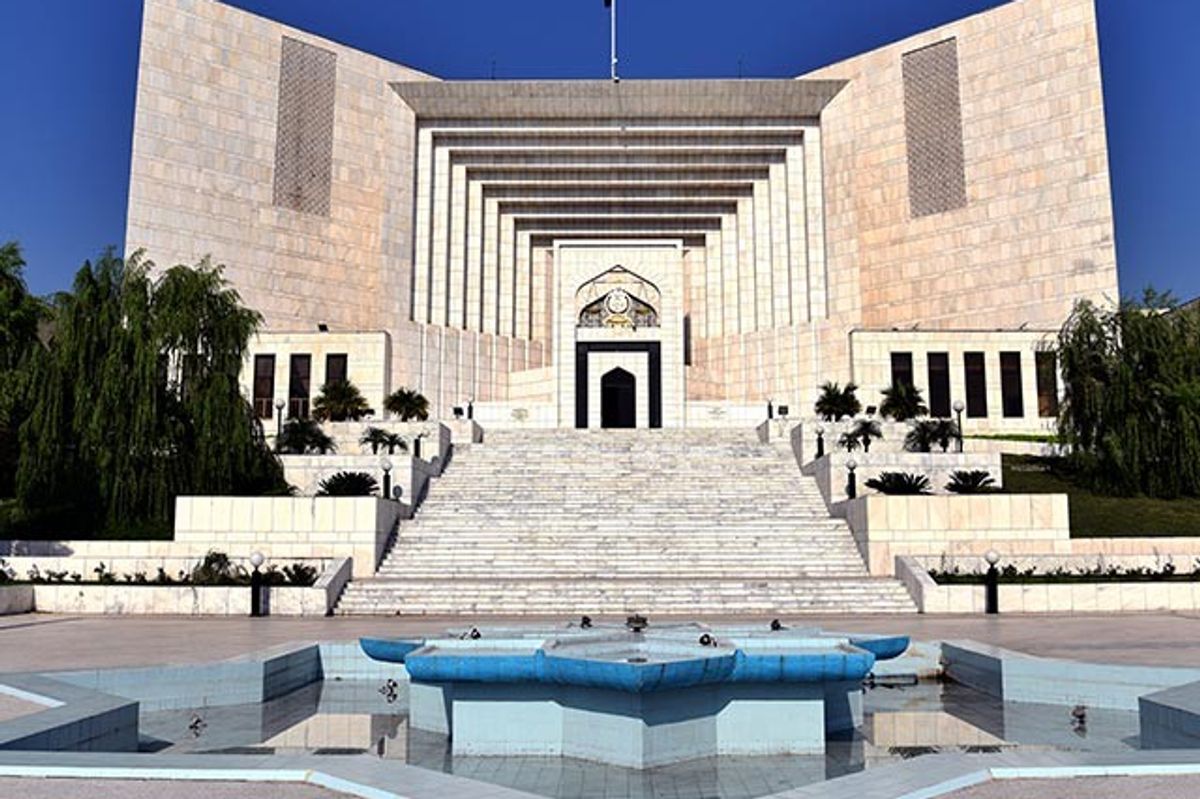Pakistan’s top court to get eight more judges
Senate law committee approves bill to increase Supreme Court judges from 17 to 25 to ease growing case backlog
News Desk
The News Desk provides timely and factual coverage of national and international events, with an emphasis on accuracy and clarity.

Supremecourt.gov.pk
A committee in Pakistan’s Senate approved a bill on Friday to increase the number of judges in the Supreme Court from 17 to 25, a move supporters say will address the growing backlog of cases.
During a full court meeting after newly appointed Chief Justice Yahya Afridi’s oath-taking last month, it was disclosed that nearly 60,000 cases are awaiting resolution in the Supreme Court.
“The meeting was convened to assess the Supreme Court’s performance in managing cases, with a focus on reducing backlogs and improving judicial efficiency. The registrar provided an overview of the current caseload and outlined measures for timely case resolution,” an official statement said.
The registrar’s report detailed that 59,191 cases are currently pending. To address this, he introduced a one-month plan under the Case Management Plan 2023, developed by Justice Syed Mansoor Ali Shah, aimed at streamlining case processing.
The proposal to increase judges comes amid recent reforms under the 26th Constitutional Amendment, passed by parliament last month. The amendment was aimed at enhancing judicial efficiency, although critics worry it could infringe on judicial independence.
The proposal, put forth by Senator Abdul Qadir during a session of the Senate Standing Committee on Law and Justice today, highlights the rise in population and crime in the country, adding pressure on the judicial system.
The committee met under the chairmanship of Pakistan Peoples Party (PPP) Senator Farooq H. Naek, where the bill was introduced by Qadir, who argued that the apex court’s workload has surged far beyond what the current roster of judges can handle.
“We’re working with the same number of judges as in the 1990s, while cases now extend across generations,” Qadir said. He pointed out that the backlog has burdened families for years as some cases outlast the lives of those involved.
'Deeper issues within judiciary to remain unaddressed'
Despite the committee's approval, the proposed increase faced opposition within the committee. Opposition party Pakistan Tehreek-e-Insaf (PTI) Senator Hamid Khan and Jamiat Ulema-e-Islam-Fazl (JUI-F) Senator Kamran Murtaza voiced concerns that adding more judges may not address deeper issues within the judiciary.
Hamid argued that the expansion could infringe on judicial independence and expressed concern over recent conflicts within the Supreme Court, suggesting the proposal was politically motivated.
“Governments often expand judicial benches to exert control,” Hamid remarked, comparing Pakistan’s judge-to-population ratio to India’s, where the Supreme Court has 34 judges. “Instead of raising numbers, we need efficiency.”
Adding to the debate, Senator Anusha Rehman noted that while members of parliament handle their own utility expenses, the government covers those for judges. She also questioned why pensions are paid to judges who have resigned, arguing for accountability in resource allocation.







Comments
See what people are discussing